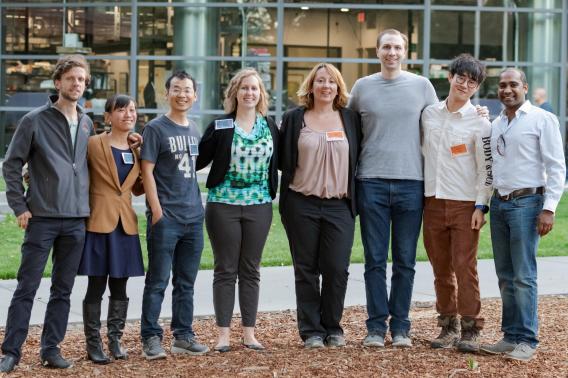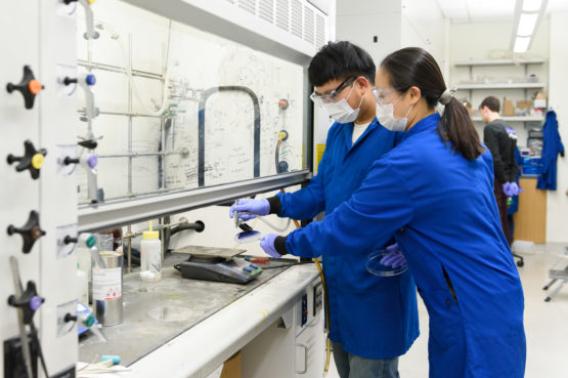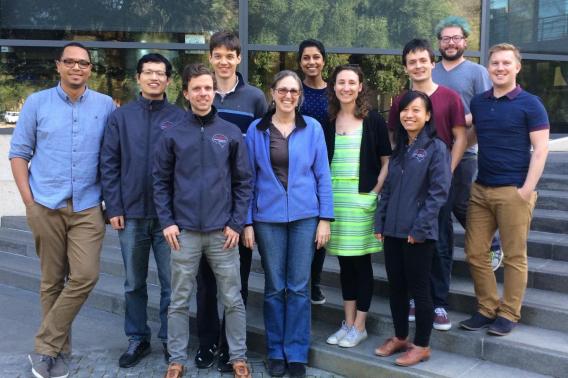The Wu Tsai Neurosciences Institute Postdoctoral Scholar Awards Program provides research support and a community of mentors and peers to extraordinary Stanford postdocs in the neurosciences.
Our program supports innovative postdoctoral scientists working at the intersection of multiple fields to advance our understanding of the mind and brain in health and disease (Interdisciplinary Track), or with a special focus on the science of brain aging and neurodegeneration (Brain Resilience Track). In addition to receiving research funding, scholars meet regularly for scientific and career development activities that allow them to learn from one another’s varied research and personal backgrounds and establish community and collaborations.
Applications for the next cohort of the Postdoctoral Scholar Awards program are closed.
2026 Cohort Applications are closed.
Our Model
This program awards two years of fellowship funding and is pleased to provide parental leave. Postdoctoral scholars also receive $5,000 of discretionary research funds annually.
Program Tracks
Interdisciplinary Scholar Track
Since 2015, Wu Tsai Neuro's Interdisciplinary Scholars program has supported innovative young scientists with backgrounds in basic and clinical biosciences; physical sciences and engineering; social sciences and education; business, law, and the humanities to engage in cutting edge neuroscience research.
Brain Resilience Scholar Track
Beginning in 2023, the Brain Resilience Scholars track, supported by the Knight Initiative for Brain Resilience, has supported trainees generating paradigm-shifting insights on the mechanisms of neurodegeneration and how to maintain brain resilience into old age.
Mentorship
The program provides scientific and career-growth opportunities and guidance under the leadership of program co-directors and faculty mentors Professors Miriam Goodman and Liqun Luo. Scholars meet monthly with their cohort and program faculty mentors to share ideas and discuss approaches to scientific and career challenges, visit each other’s labs to learn about different research techniques and areas of study, and practice communicating their research to scientific and general audiences.
In addition, Brain Resilience Track scholars attend events and seminars hosted by the Knight Initiative for Brain Resilience, and are stewarded by Knight Initiative faculty mentor Elizabeth Mormino to learn from one another and build community around the topic of neurodegeneration and brain resilience.
The Wu Tsai Neurosciences Institute Postdoctoral program brings together cohorts of postdocs representing a broad range of demographic, experiential and scientific backgrounds. Women and postdocs from groups underrepresented in the neurosciences are strongly encouraged to apply.
Learn more

Application and Eligibility Details
Carefully review the detailed information below if you are interested in applying to the Interdisciplinary Postdoctoral Scholars track or the Brain Resilience Postdoctoral Scholars track of the program.




